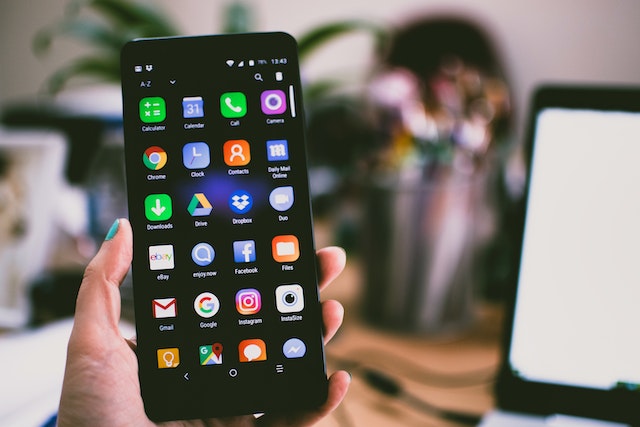Theme:
- Recently IIT Madras has developed India’s very own mobile operating system called BharOS. It is said to be a step forward in providing a more secure software experience to users and a boost to Atmanirbhar Bharat.
Why an indigenous OS?:
- Currently, the majority of the smartphones in India run on two operating systems, the IOS from Apple and Android from Google, both of which are foreign companies. This raises concerns about the privacy and security of users in India.
- Our own indigenously developed OS will help in ending the duopoly of Apple and Google in the smartphone operating system and apps market, and reduce the dependency on them.
- It will also protect users from using pre-installed apps that other OS and smartphone companies force on their users.
- Having our own operating system will help us to have better control over data and information flow within the country, which can prevent sensitive information from falling into the hands of foreign countries or terrorist groups.
Benefits of BharOS:
- BharOS is expected to be available for a wide range of devices, like smartphones, laptops etc.
- BharOS will not ship with Google, Apple or Microsoft services pre-installed, which will allow the user to decide which service and apps he/she wants to opt for.
- User security is the top priority of BharOS, so it is expected to provide the best security and protection to the user.
- BharOS will receive security updates through the Native Over The Air (NOTA) update process, which automatically downloads and installs the updates to the phone without the need for manual initiation by the user.
- It will be of great benefit to organizations that have stringent privacy and security requirements, helping them to handle sensitive information without any worry.
Challenges:
- The developers of BharOS have not specified when it will be accessible to the public.
- It is also not clear for how long the developers will push security and software updates to BharOS.
- Android and IOS have taken decades and a lot of manpower and financial resources to reach where they are now. So, it can be very difficult for BharOS to compete with them.
- One of the main reasons why Android and IOS are the two most popular mobile operating systems is their own app stores. Because the OS is so new and has a zero user base as of now, BharOS may struggle to attract developers to create apps for it, making it difficult to sustain users who are used to existing apps. Windows Phone OS of Microsoft failed due to its inability to attract third-party developers.
- It will also be difficult to make BharOS-powered devices available to consumers, as the manufacturers may hesitate to produce devices that will run on a new operating system because that can be risky for the smartphone companies initially.
- In the past, the government attempted to replace existing operating systems in smartphones and computers with an indigenous one called Bharat Operating System Solution (BOSS), but it was not successful.
Way forward:
- The government will have to provide sufficient funds to the developers of BharOS in future to cover the high cost of development and maintenance for the OS.
- It will become very important to attract talented, skilled and experienced developers and experts to the development of the OS.
- It will also be very important to market the BharOS to the public and provide them with a good reason to switch to it over the other existing ones.
- The BharOS developers will need to gain the trust of the public by supporting BharOS devices continuously with security and privacy updates.
- Initially, the government will have to provide some sort of incentive to the mobile and computer manufacturers to make devices with BharOS.
Conclusion:
The decision to develop India’s own indigenous smart device operating system, called BharOS, is a good move for several reasons. By developing its own operating system, India can increase security and privacy for its citizens, create jobs and stimulate economic growth, reduce dependence on foreign technology companies, and foster innovation and technological development within the country. Additionally, an indigenous operating system can be tailored to meet the specific needs and preferences of Indian citizens and can help in better control over data and information flow within the country, which is critical for national security, economic stability, and socio-political stability. While there are certainly challenges to developing and promoting a domestic operating system, the potential benefits outweigh the challenges, and it’s a strategic move for India.
Photo by Lisa Fotios
Your Turn…
What’s your take on this topic? Express your point of view through the comment section below. And subscribe to our blog to read answers to the trending GD topics.
References:
Copyright @ Group Discussion Ideas.

